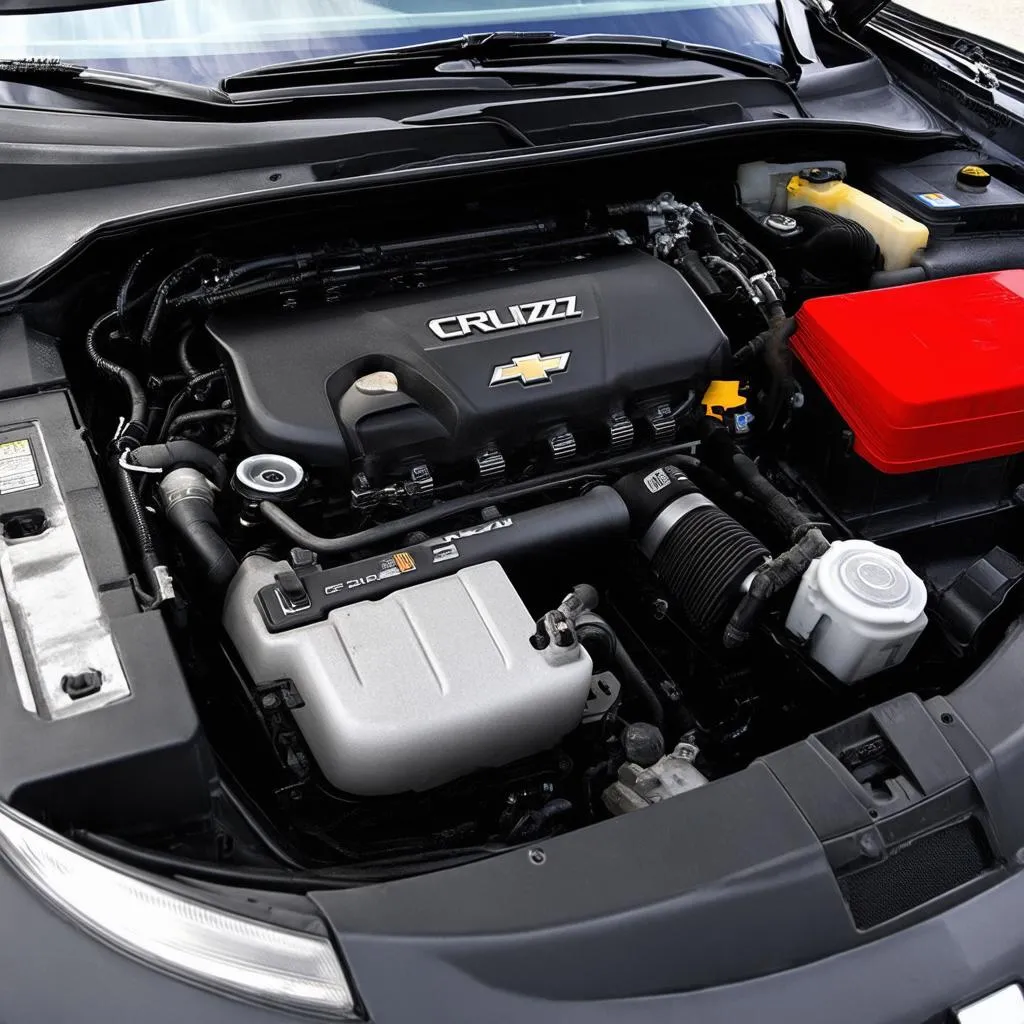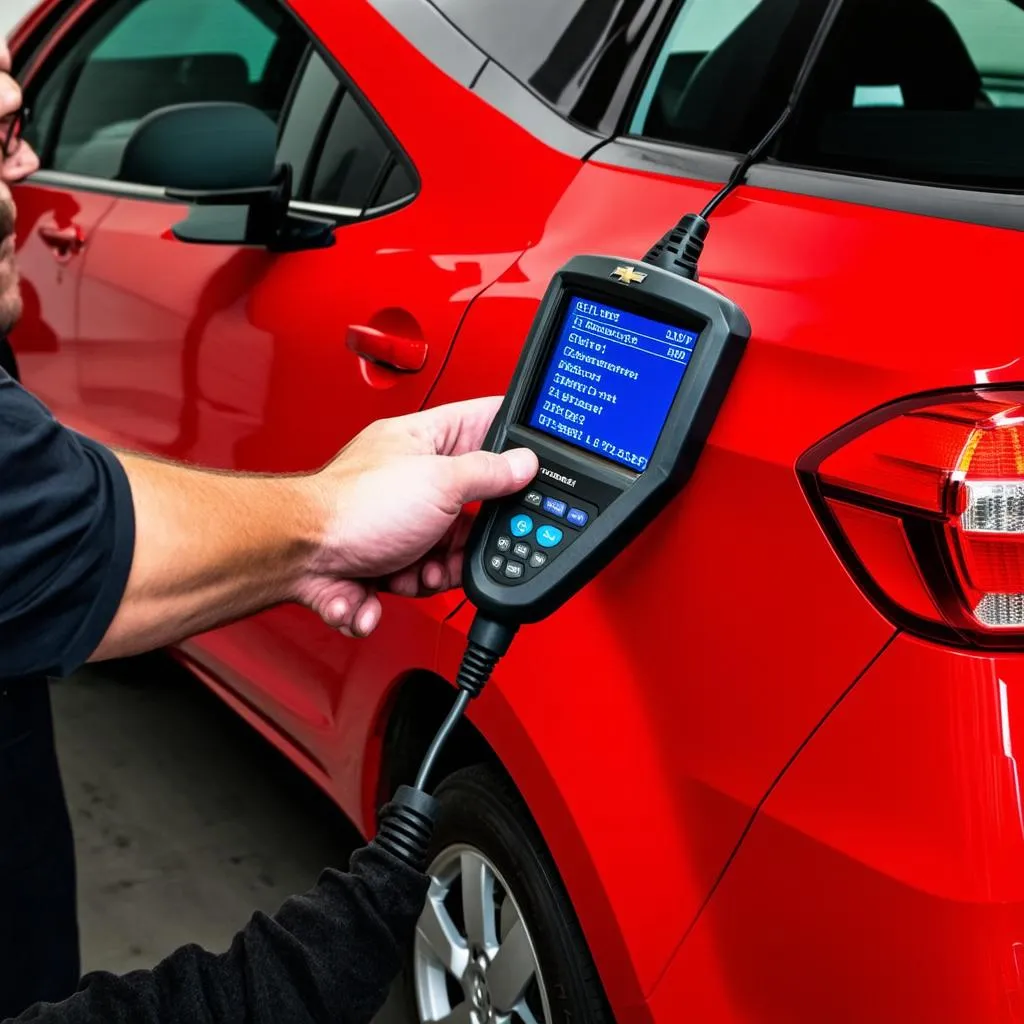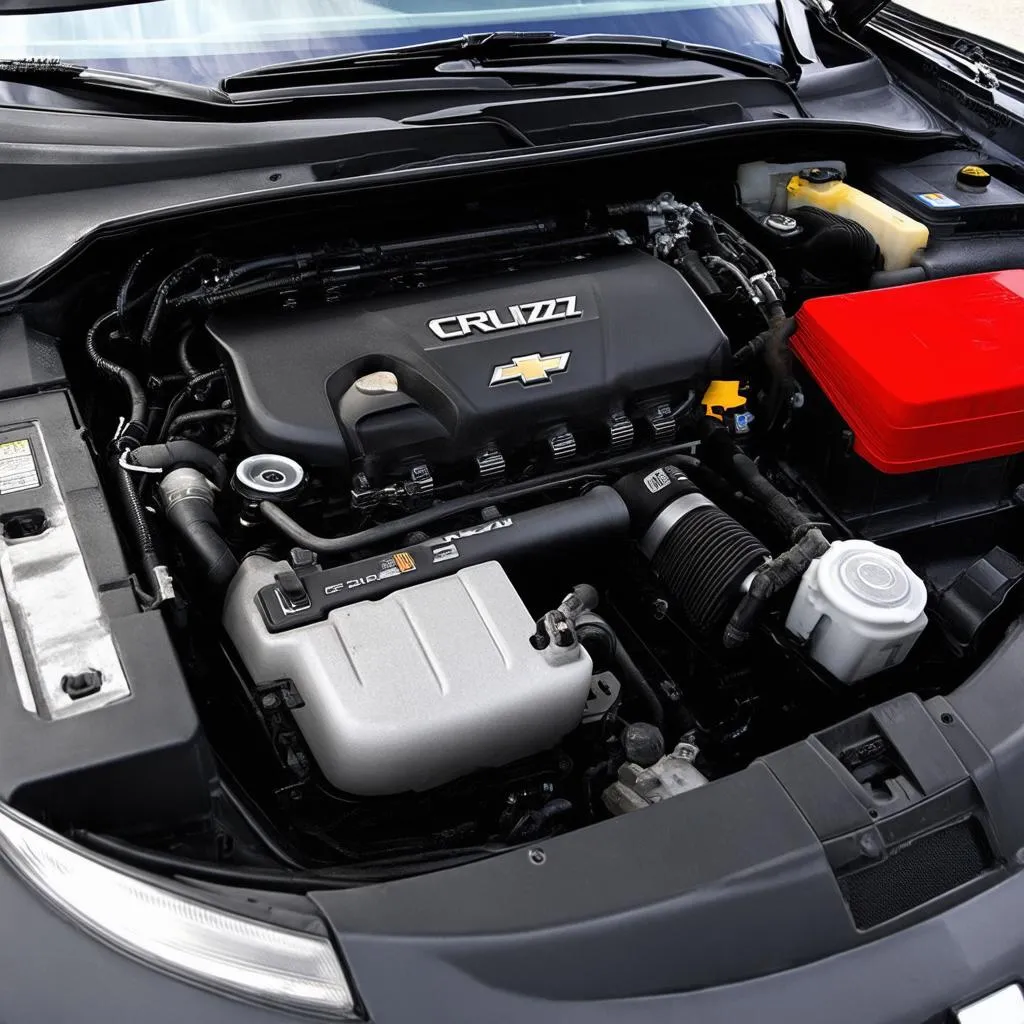Ever felt that sinking feeling when your “Check Engine” light decides to make a surprise appearance? It’s like a cryptic message from your car, leaving you wondering what’s going on under the hood. For 2013 Chevy Cruze owners, this often means grappling with those mysterious things called OBD error codes. But fear not, fellow drivers! This comprehensive guide is here to shed light on these codes, helping you understand what your Cruze is trying to tell you.
Deciphering the Language of Your Car
Imagine this: you’re driving down the highway, and suddenly, that dreaded “Check Engine” light pops up on your dashboard. Your heart skips a beat as you recall your mechanic’s hefty hourly rate. This, my friend, is a classic example of how important it is to understand your car’s language – the language of OBD error codes.
What Exactly are OBD Error Codes?
OBD, short for On-Board Diagnostics, is essentially your car’s internal computer system. When it detects a problem, it generates a specific code, stored in its memory. These codes are like clues, pointing towards potential issues within your car’s engine, transmission, emissions system, or other critical components.
Why Should You Care About Them?
Ignoring these codes is like ignoring a flashing “Exit” sign in a burning building – not a wise move! Understanding these codes can empower you to:
- Identify the problem early on: This can prevent minor issues from snowballing into major (and expensive) repairs.
- Go to the mechanic prepared: Knowing the code beforehand can save you from unnecessary diagnostic fees and potential upselling tactics.
- Potentially fix the issue yourself: For the mechanically inclined, some codes might point to simple fixes you can tackle yourself.
2013 Chevy Cruze: Common OBD Error Codes and What They Mean
Now, let’s dive into some of the most common OBD error codes you might encounter with your 2013 Chevy Cruze, along with their possible interpretations:
1. P0401: EGR System Insufficient Flow Detected
-
What it means: Your car’s Exhaust Gas Recirculation (EGR) system, responsible for reducing emissions, isn’t flowing exhaust gases as it should. This could be due to a clogged EGR valve or a faulty EGR solenoid.
-
Story time: Imagine trying to breathe through a straw clogged with a milkshake – not fun, right? That’s what your EGR system feels like with this code.
2. P0171: System Too Lean (Bank 1)
-
What it means: The engine air-fuel mixture is running too lean (too much air, not enough fuel) in Bank 1, which refers to the side of the engine with cylinder #1. This could be caused by a faulty oxygen sensor, a vacuum leak, or a problem with the fuel injectors.
-
Analogy: Think of trying to start a campfire with just a few twigs and no kindling – it needs the right fuel-air balance to burn properly.
3. P030X: Cylinder X Misfire Detected
-
What it means: This code indicates a misfire in a specific cylinder, with “X” representing the cylinder number. Causes can range from faulty spark plugs or ignition coils to issues with fuel injectors or even internal engine problems.
-
Think of it like this: Imagine one of your car’s cylinders is a grumpy employee refusing to work. It disrupts the whole engine’s performance.
 2013 chevy cruze engine
2013 chevy cruze engine
4. P0128: Coolant Thermostat (Coolant Temperature Below Thermostat Regulating Temperature)
-
What it means: Your engine isn’t reaching its optimal operating temperature, likely due to a stuck-open thermostat.
-
Imagine: Trying to take a warm bath with only cold water running. Your engine needs to be at the right temperature for optimal performance and efficiency.
5. P0442: Evaporative Emission Control System Leak Detected (Small Leak)
-
What it means: There’s a small leak somewhere in your EVAP system, which is responsible for capturing fuel vapors from the gas tank. This could be due to a loose gas cap, a cracked EVAP hose, or a faulty vent valve.
-
Story time: Remember that time you forgot to tighten the lid on your coffee thermos? This code is like your car telling you there’s a similar leak, but with fuel vapors.
Finding Harmony Between Technology and Spirit
While understanding the technical aspects of OBD error codes is crucial, there’s an interesting parallel to be drawn with the concept of balance and harmony in many spiritual traditions.
Just as a balanced energy flow is essential for well-being, a well-functioning car relies on the harmonious interaction of its various systems. OBD error codes are often indicative of an imbalance – whether it’s the air-fuel ratio, engine timing, or emissions control. By addressing these codes promptly, we restore balance and ensure the smooth operation of our vehicles.
Empower Yourself with Knowledge
Remember, that little “Check Engine” light isn’t there to scare you. It’s your car’s way of communicating its needs. By learning to understand its language – the language of OBD error codes – you can become a more informed and empowered car owner.
And hey, if those codes leave you scratching your head, don’t hesitate to reach out to our team of automotive experts via Whatsapp at +84767531508. We’re here to help you navigate the world of car diagnostics and keep your 2013 Chevy Cruze running smoothly.
Need More Help with Your 2013 Chevy Cruze?
- Check out our other articles on common Chevy Cruze problems.
- Explore our range of diagnostic tools for European cars.
- Find out if we support your specific car model.
 2013 Chevy Cruze OBD Scanner
2013 Chevy Cruze OBD Scanner
Don’t let car troubles dampen your spirits! With a little knowledge and the right tools, you’ve got this!

